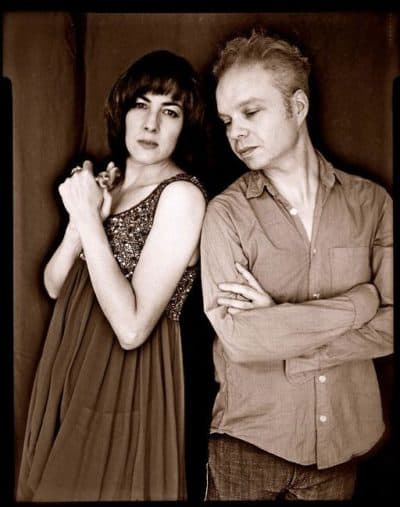Advertisement
If Online Music Services Like Pandora Pay Musicians So Little, Why Not Just Stream Your Tunes For Free?

“Today it is no longer possible for most of us to earn even a modest wage through our recordings,” musician Damon Krukowski wrote recently at Pitchfork.com, while surveying the minuscule fees paid to musicians by online music steaming services like Pandora and Spotify.
It never been easy to make a go of it as a musician, as Krukowski well knows as a member of the celebrated 1980s and ‘90s indie rock trio Galaxie 500, which broke up when singer and guitarist Dean Wareham left the group in 1991. Krukowski and the band’s bassist Naomi Yang, now married and living in Cambridge, continue to perform under the name Damon & Naomi. (Krukowski is also a writer; he’s scheduled to read at the Gloucester Writers Center, 126 East Main St., Gloucester, on Dec. 8.)
But now, Krukowski writes:
“Consider Pandora and Spotify, the streaming music services that are becoming ever more integrated into our daily listening habits. My BMI royalty check arrived recently, reporting songwriting earnings from the first quarter of 2012, and I was glad to see that our music is being listened to via these services. Galaxie 500's ‘Tugboat,’ for example, was played 7,800 times on Pandora that quarter, for which its three songwriters were paid a collective total of 21 cents, or seven cents each. Spotify pays better: For the 5,960 times ‘Tugboat’ was played there, Galaxie 500's songwriters went collectively into triple digits: $1.05 (35 cents each).”
As a result Krukowski and friends have decided to stream all of their recordings "completely free." His report arrives as another fundamental warning about the economic sustainability of the music industry. U.S. music sales fell by about half in the 2000s. A September report by New York Magazine argued that even “indie-rock royalty" like New York’s Grizzly Bear are struggling to make a buck:
For much of the late-twentieth century, you might have assumed that musicians with a top-twenty sales week and a Radio City show—say, the U2 tour in 1984, after “The Unforgettable Fire”—made at least as much as their dentists. Those days are long and irretrievably gone, but some of the mental habits linger. “People probably have an inflated idea of what we make,” says [Grizzly Bear singer Ed] Droste. “Bands appear so much bigger than they really are now, because no one’s buying records. But they’ll go to giant shows.” Grizzly Bear tours for the bulk of its income, like most bands; licensing a song might provide each member with “a nice little ‘Yay, I don’t have to pay rent for two months.’ ” They don’t all have health insurance.
But back to Krukowski: “Here's the rub, Pandora and Spotify are not earning any income from their services, either...” Read his whole Pitchfork essay here.
Previously:
This program aired on December 5, 2012. The audio for this program is not available.
